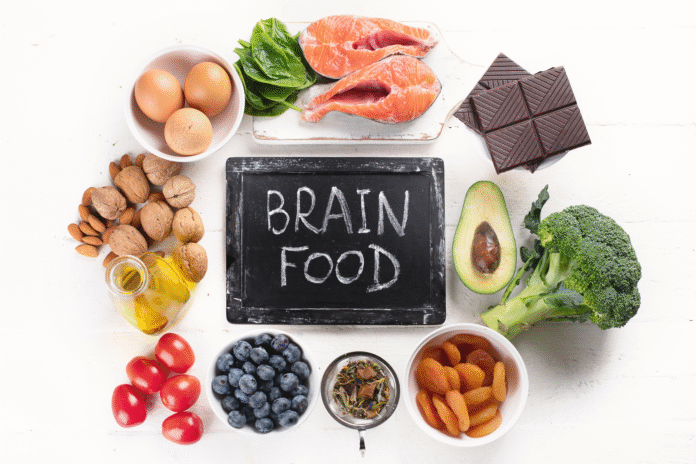The brain is an energy-intensive organ, using around 20 percent of the body’s calories, so it needs plenty of good fuel to maintain concentration throughout the day. The brain also requires certain nutrients to stay healthy. Omega-3 fatty acids, for example, help build and repair brain cells, and antioxidants reduce cellular stress and inflammation, which are linked to brain aging and neurodegenerative disorders, such as Alzheimer’s disease.
Dark chocolate
Dark chocolate contains cocoa, also known as cacao. Cacao contains flavonoids, a type of antioxidant. Antioxidants are especially important for brain health, as the brain is highly susceptible to oxidative stress, which contributes to age-related cognitive decline and brain diseases. Cacao flavonoids seem to be good for the brain. According to a 2013 review, they may encourage neuron and blood vessel growth in parts of the brain involved in memory and learning. They may also stimulate blood flow in the brain. Some research also suggests that the flavonoid component of chocolate may reverse memory problems in snails. Scientists have yet to test this in humans. However, a 2018 study in humans also supports the brain-boosting effects of dark chocolate. The researchers used imaging methods to look at activity in the brain after participants ate chocolate with at least 70 percent cacao. The researchers concluded that eating this type of dark chocolate may improve brain plasticity, which is crucial for learning, and may also provide other brain-related benefits.
Berries
Like dark chocolate, many berries contain flavonoid antioxidants. Research suggests that these may make the berries good food for the brain. Antioxidants help by reducing inflammation and oxidative stress. The antioxidants in berries include anthocyanin, caffeic acid, catechin, and quercetin. A 2014 review notes that the antioxidant compounds in berries have many positive effects on the brain, including:
- improving communication between brain cells
- reducing inflammation throughout the body
- increasing plasticity, which helps brain cells form new connections, boosting learning and memory
- reducing or delaying age-related neurodegenerative diseases and cognitive decline
Antioxidant-rich berries that can boost brain health include:
- strawberries
- blackberries
- blueberries
- blackcurrants
- mulberries
Coffee
Coffee is a well-known concentration aid — many drink it to stay awake and encourage focus. The caffeine in coffee blocks a substance in the brain called adenosine, which makes a person feel sleepy. Beyond boosting alertness, a 2018 study suggests that caffeine may also increase the brain’s capacity for processing information. The researchers found that caffeine causes an increase in brain entropy, which refers to complex and variable brain activity. When entropy is high, the brain can process more information. Coffee is also a source of antioxidants, which may support brain health as a person gets older. One study has linked lifelong coffee consumption with reduced risk of:
- cognitive decline
- stroke
- Parkinson’s disease
- Alzheimer’s disease
Caffeine can, however, affect a person’s sleep and doctors do not recommend caffeine consumption for everyone.
Avocados
A source of healthful unsaturated fat, avocados may support the brain. Eating monounsaturated fats may reduce blood pressure, and high blood pressure is linked with cognitive decline. Thus, by reducing high blood pressure, the unsaturated fats in avocados may lower the risk of cognitive decline.
Other sources of healthful unsaturated fats include:
- almonds, cashews, and peanuts
- flaxseed and chia seeds
- soybean, sunflower, and canola oils
- walnuts and Brazil nuts
- fish
Broccoli
Broccoli and other cruciferous vegetables are rich in fiber and nutrients. As well as being a low-calorie source of dietary fiber, broccoli may be good for the brain. Broccoli is rich in compounds called glucosinolates. When the body breaks these down, they produce isothiocyanates. Isothiocyanates may reduce oxidative stress and lower the risk of neurodegenerative diseases. Broccoli also contains vitamin C and flavonoids, and these antioxidants can further boost a person’s brain health.
Other cruciferous vegetables that contain glucosinolates include:
- brussels sprouts
- bok choy
- cabbage
- cauliflower
- turnips
- kale

